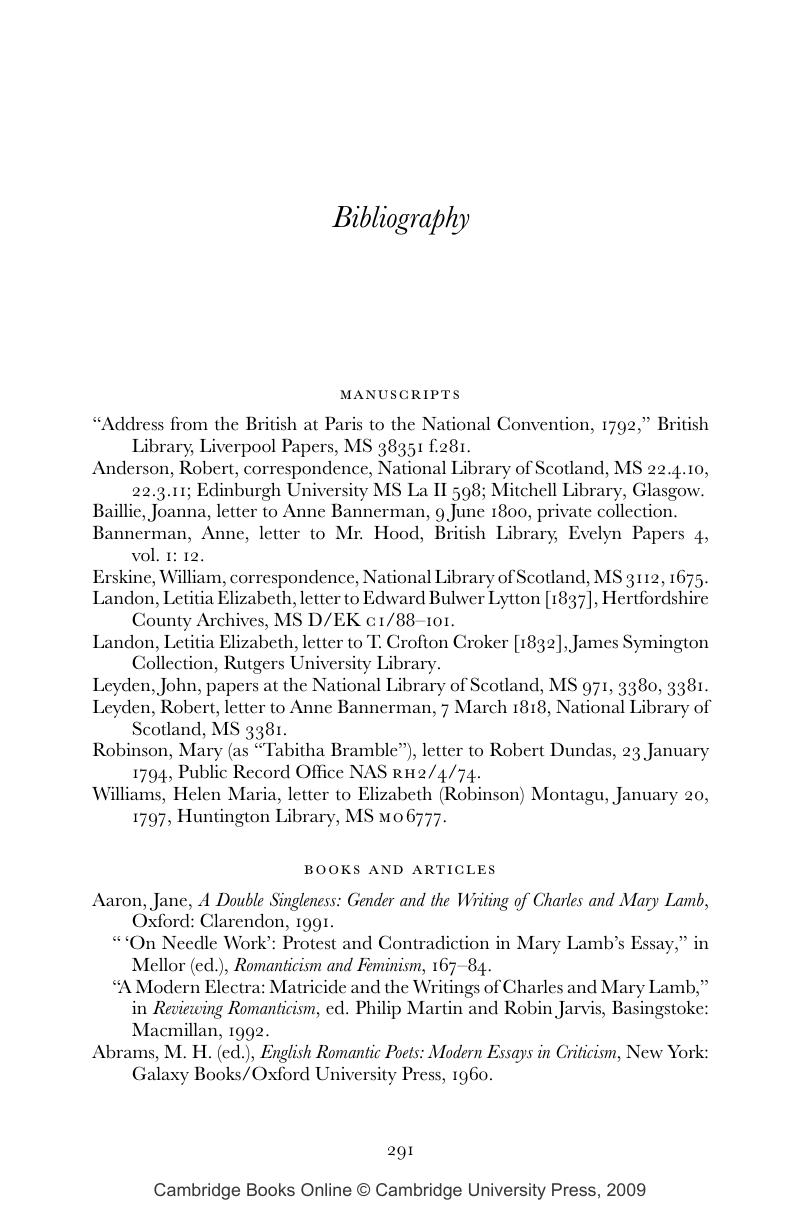Book contents
- Frontmatter
- Contents
- List of illustrations
- Acknowledgments
- List of abbreviations
- Introduction
- 1 The subject of violence: Mary Lamb, femme fatale
- 2 Violence against difference: Mary Wollstonecraft, Mary Robinson and women's strength
- 3 “The aristocracy of genius”: Mary Robinson and Marie Antoinette
- 4 Unnatural, unsexed, undead: Charlotte Dacre's Gothic bodies
- 5 “In seraph strains, unpitying, to destroy”: Anne Bannerman's femmes fatales
- 6 “Life has one vast stern likeness in its gloom”: Letitia Landon's philosophy of decomposition
- Notes
- Bibliography
- Index
- References
Bibliography
Published online by Cambridge University Press: 22 September 2009
- Frontmatter
- Contents
- List of illustrations
- Acknowledgments
- List of abbreviations
- Introduction
- 1 The subject of violence: Mary Lamb, femme fatale
- 2 Violence against difference: Mary Wollstonecraft, Mary Robinson and women's strength
- 3 “The aristocracy of genius”: Mary Robinson and Marie Antoinette
- 4 Unnatural, unsexed, undead: Charlotte Dacre's Gothic bodies
- 5 “In seraph strains, unpitying, to destroy”: Anne Bannerman's femmes fatales
- 6 “Life has one vast stern likeness in its gloom”: Letitia Landon's philosophy of decomposition
- Notes
- Bibliography
- Index
- References
Summary

- Type
- Chapter
- Information
- Fatal Women of Romanticism , pp. 291 - 318Publisher: Cambridge University PressPrint publication year: 2002

